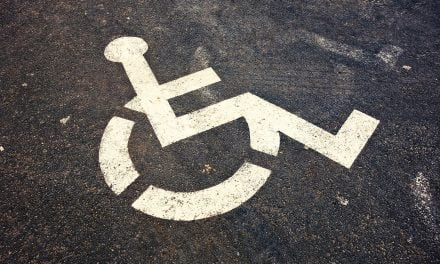Foreclosure is the ultimate threat to homeowners, a threat which pandemic-induced job losses made all too real.
In March 2020, the Coronavirus Aid, Relief, and Economic Security (CARES) Act alleviated the overwhelming pressure by offering forbearance programs for homeowners in default on their mortgage payments. A forbearance program temporarily staves off foreclosure while the servicer works with the homeowner to bring the mortgage current.
Mortgaged homeowners who entered into a forbearance program under the CARES Act included:
- 83% of Black mortgaged homeowners in default;
- 84% of white mortgaged homeowners in default;
- 87% of Latinx mortgaged homeowners in default; and
- 88% of Asian mortgaged homeowners in default, according to the Atlanta Federal Reserve Bank.
Homeowners in default on their mortgage payments by 30+ days were encouraged to apply — regardless of annual income. This easy accessibility allowed homeowners to postpone their mortgage payments upwards of 18 months without incurring penalties while the pandemic continued to squeeze wallets.
While the CARES Act offered relief for homeowners unable to make payments, many participants were unable to take advantage of historically low interest rates to permanently decrease their payments through refinancing.
Refinancing benefited homeowners unequally across race and ethnicity, as from March 2020 through March 2021, the share of refinancers was limited to:
- 11% of Black mortgaged homeowners;
- 15% of Latinx mortgaged homeowners;
- 19% of white mortgaged homeowners; and
- 22% of Asian mortgaged homeowners.
When accounting for other underwriting variables such as credit score, loan-to-value ratio, income at origination, loan amount, and potential savings from refinancing, Black homeowners were just 67% as likely as white homeowners to refinance.
Factors which contributed to a lower share of Black and Latinx refinancers included:
- income risk;
- employment risk;
- differences in health risk; and
- discriminatory lending practices.
These factors placed Black and Latinx homeowners below the threshold of refinancers receiving approval, thus creating a system of refinancing inequality.
Related article:
Explicitly biased: A need for change
Discriminatory lending practices have created an untrustworthy real estate environment for non-white homeowners. The history of these practices highlights the implicit bias lurking within the real estate industry.
For example, the appraisal process is meant to be objective by nature, yet is still influenced by subjective opinions — which are often biased.
This leads to non-white homeowners receiving below-market appraisals, negatively impacting their equity position in the eyes of lenders and making it more difficult to qualify for a refinance.
For instance, properties in majority-Black neighborhoods are regularly appraised 12.5% lower than the final purchase price. In comparison, similar properties are appraised for 7.4% lower from their purchase price in white neighborhoods.
This 5.2% appraisal gap emphasizes the disparity between the higher valuation of properties in white neighborhoods compared to the lower valuation of properties in Black and Latinx neighborhoods.
In one such example, homeowners attempting to refinance with these historically low interest rates received their property’s value appraised for much lower than the expected market value.
The homeowners removed family photos depicting the Black wife and mixed-race children, replacing them with oil paintings of the white husband. The appraisal they received for the property was more than $100,000 higher than the previous appraisal, according to the New York Times.
A lower appraisal of a property’s value results in less equity in the lender’s estimation. Without sufficient equity, non-white homeowners are less likely to qualify for refinancing.
When taking this into account, it’s no surprise the share of Black and Latinx refinancers was well below that of white homeowners who refinanced during the pandemic, despite the benefits of low interest rates.
California’s legislature recognizes the negative impacts of these disparities not just in mortgage refinancing, but across the real estate industry. In response, California real estate professionals are now required to do their part in preventing discriminatory practices by taking an Implicit Bias course alongside their regular continuing education.
firsttuesday’s two-hour Implicit Bias training will prepare real estate professionals to identify and counteract elements of systemic racism — conscious and unconscious — in real estate transactions.
Current firsttuesday students may access their required course by logging into their existing accounts. Students who are not yet enrolled may visit the order page. Or give our customer service team a call at 951-781-7300.
Related article:














